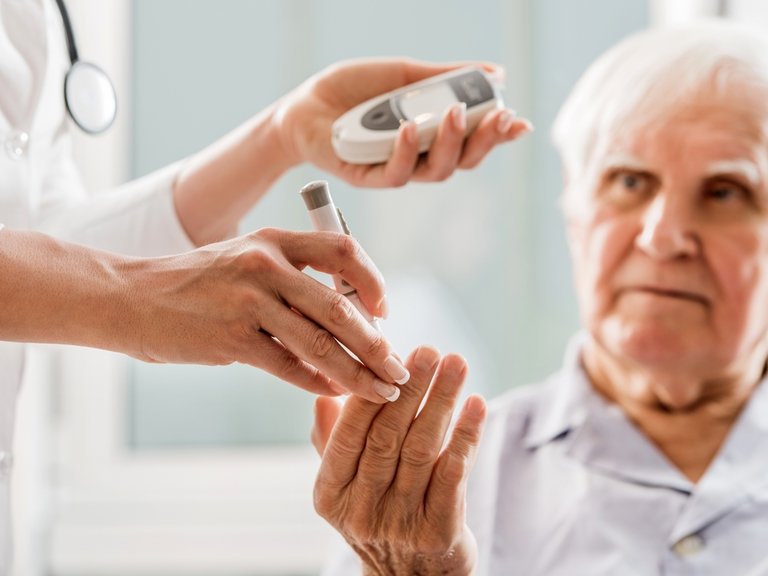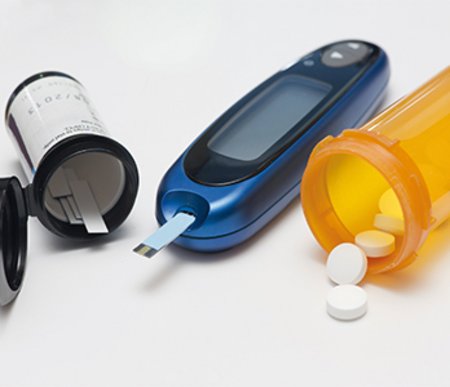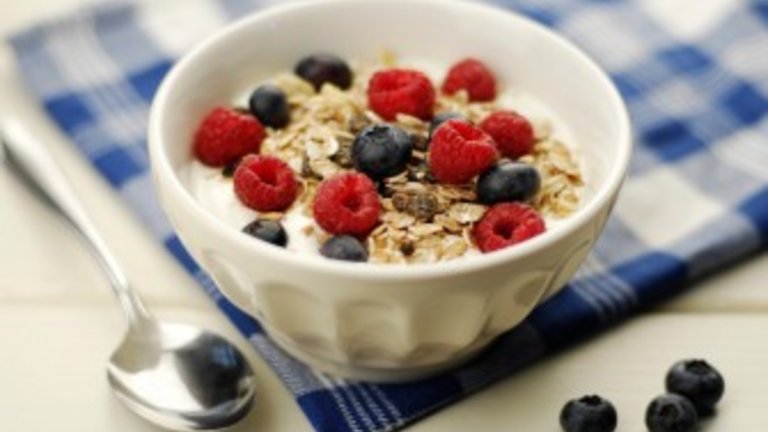As a diabetes patient on dialysis your diet can still be filled with delicious, nutritious foods.
Diabetes
Diabetes refers to a group of metabolic diseases where a person has high blood sugar – or glucose. This happens when the pancreas doesn’t produce enough insulin, or when the cells of the body no longer respond as they should to the insulin produced.
Insulin is a hormone produced by the body and responsible for regulating blood sugar levels. In diabetes the body is not able to regulate these levels and so glucose builds up in the bloodstream.
As insulin is a protein it would be broken down during digestion if taken in pill form, therefore diabetic patients take it as a subcutaneous injection.
Different types
Development of the disease / risk factors
As you can see insulin plays a key role in diabetes. It is needed to convert sugar, starch and other food into the energy our cells need to work. When this no longer happens the cells don’t get the energy they need and sugar accumulates in the blood, which is damaging to our health. Although this damage is not immediate, there is the risk of long-term complications that tend to develop after around 10-20 years.
The long term damage caused by having high blood sugar for long periods of time can affect the eyes (causing visual impairment and blindness), the nerves (numbness in feet, legs and arms), the heart (atherosclerosis and related diseases), and the kidneys.
The connection between diabetes and kidneys
Diabetes is the leading cause of chronic kidney disease (CKD), affecting millions of people worldwide. Approximately 50% of Fresenius Medical Care’s dialysis patients are diabetic.
If you’re living with diabetic kidney disease, it’s extremely important to stay in control of and care for both your diabetes and kidneys so you can be your healthiest.
Are diabetes and kidney disease related?
Diabetic kidney disease refers to a decrease in kidney function that occurs in some people who have diabetes. Diabetes is a risk factor for kidney disease. Over time, high sugar levels in the blood can cause tiny blood vessels in the kidney to become narrow and clogged. Without enough blood, the kidneys become damaged.
Diabetes can also cause damage to the nerves in your body. If the nerves of the bladder are damaged, you may not be able to feel when your bladder is full. The pressure from a full bladder can damage your kidneys. If urine stays in your bladder for a long time, you may get a urinary tract infection. This is caused by bacteria, which grows rapidly in urine with a high sugar level. These infections can sometimes spread to the kidneys.
People with diabetes may also develop high blood pressure. This is another leading cause of CKD. If you are diagnosed with kidney disease, it's important to know that you can take steps to manage CKD.
What are the signs and symptoms of diabetes and kidney disease?
Kidney disease and diabetic kidney disease share similar symptoms. You are unlikely to have symptoms with early diabetic kidney disease. Symptoms may begin with feeling tired or having less energy than usual.
Four ways to manage symptoms of diabetic kidney disease
It’s essential that you follow your doctor’s exact instructions for managing diabetes and kidney disease. In general, there are certain steps that should be part of your daily routine to control blood sugar.
1. Test and track blood sugar levels
You can self-test your blood sugar (blood glucose levels) at home with a portable electronic device. This is called a blood sugar meter and uses a small drop of your blood. You can also use a device called a continuous glucose monitor (CGM).
2. Manage blood pressure
More than 80% of people with diabetes and CKD have hypertension (high blood pressure). Talk to your doctor about creating a treatment plan to help you take control of your blood pressure. Steps you can take include eating a healthy, low-sodium diet, exercising regularly, managing stress, and quitting smoking.
3. Take your medications as prescribed
Which kidney medications your doctor prescribes may depend on several personal health factors. These include your level of kidney function, which kidney disease stage you're in, and whether you're managing any other health conditions. Your doctor may also prescribe specific medications just for managing diabetes.
4. Make healthy food choices
Start by reading nutrition labels to help you select healthier options, such as those with lower sodium and sugar. High-fiber foods, such as whole grains and fresh fruits and vegetables, may help improve blood sugar levels. Talk to your doctor or dietitian to help you learn exactly what to eat and drink to follow a kidney-friendly diet with diabetes.
Explore our delicious selection of diabetes kidney friendly recipes here.



